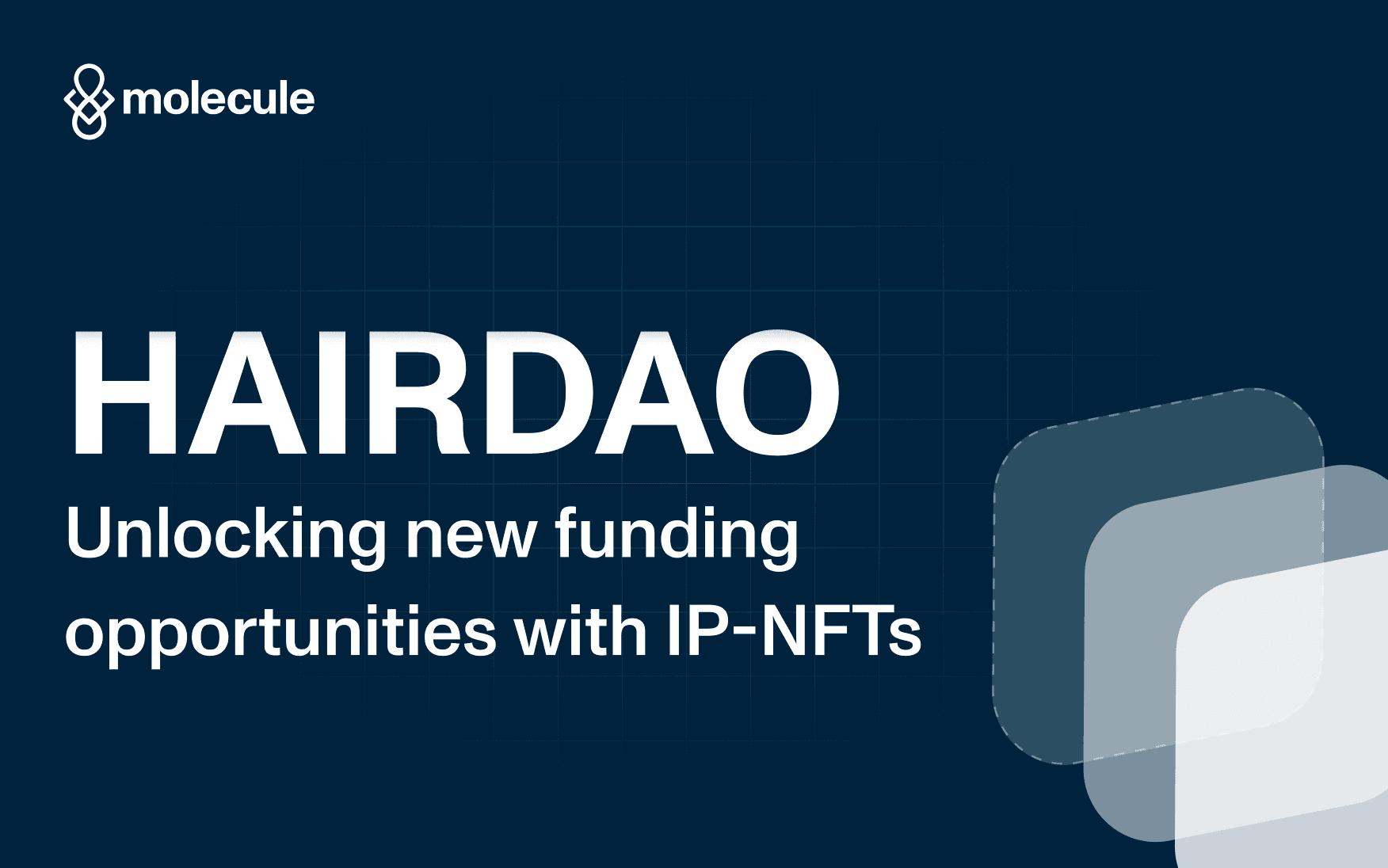HairDAO: Breaking the 'Cosmetic Condition' Barrier and Unlocking New Funding Possibilities with IP-NFTs
HairDAO, a BioDAO that is currently a part of the bio.xyz accelerator, had their first IP-NFT transaction. For $75k, HairDAO will gain access to the initial data from Dr. Ralf Paus’ lab Cutaneon.
Heinrich Tessendorf

Though hair loss is typically not the prime example people give for scientific research, it is still a condition that impacts nearly 60% of the global population. Outside of treating hair loss patients, hair loss research is also incredibly under-appreciated as a low-risk human model to understand how regulating various pathways may affect other organs in the human body, given that a hair follicle is essentially a mini organ. Niche research like early stage androgenic alopecia (hair loss) studies receive only about $5.4 million per year from all government agencies globally because of its classification as a “cosmetic condition.” Oftentimes, various studies of science like longevity or hair loss do not receive enough attention because they are not technically classified as “diseases.” These conditions, however, still impact human health in indirect ways as indicated by the high correlation between poor mental health and hair loss.
HairDAO, a BioDAO that is currently a part of the bio.xyz accelerator, had their first IP-NFT transaction. For $75k, HairDAO will gain access to the initial data from Dr. Ralf Paus’ lab Cutaneon. Then, based on the results, HairDAO may opt to test combinations of T3/T4 thyroid hormone at different dosages for an additional $50k. Not only is this the first IP-NFT coming out of the bio.xyz pipeline, but HairDAO will also be the first BioDAO, other than VitaDAO, to be transacting an IP-NFT.
On February 16th, the IP-NFT was officially minted and transacted! The etherscan transaction can be viewed here. As per custom, the transfer ceremony occurred with an insightful and exciting conversation between Dr. Paus of Cutanenon, HairDAO founders Andrew Verbinnen and Andrew Bakst, and Benji Leibowitz from Molecule. When asked about his experience of working with HairDAO and receiving funding through an IP-NFT, Dr. Paus expressed that “the approach that was taken was not only creative, it’s also necessary and democratic.” Despite decades of research experience using the traditional science model, Dr. Paus highlights the importance of using decentralized science technology to implement a “business model where the people who have a vested interest in the research should not only able to vote but should also somehow contribute to finding the money that propels the research - that kind of a model makes perfect sense.” Watch the replay for the transfer ceremony below:
One of Molecule’s big goals of funding through IP-NFTs is to target typically underinvested areas of science such as longevity or hair loss. These various fields of research impact a large population, but due to limited government funding, certain types of research and studies like clinical trials and cancer-related studies get prioritized in funding allocation. Unlike government funding models, BioDAOs allow for bottom-up rather than top-down funding. They aim to provide a solution for a group of people specifically wanting a solution to hair loss.
About the author

Heinrich Tessendorf
Previously, I worked in pharma and longevity research, seeing firsthand how chronic diseases like hypertension and diabetes erode health over time. Now, as an ACE-Certified Personal Trainer & Longevity Coach, I help professionals build strength, stay pain-free, and move better for decades to come.
Related Posts

Inside Molecule's Biggest Technical Evolution
Exploring the design decisions, new capabilities, and technical shifts powering Molecule's most transformative release to date.

The DeSci Value Flywheel
IP (intellectual property) Tokens offer an open, permissionless, decentralized way to fund scientific research onchain – and then what?

Science IP Tokens /acc
Molecule’s original Science IP Token framework introduced a new primitive for science – a governance token linked directly to scientific IP.
